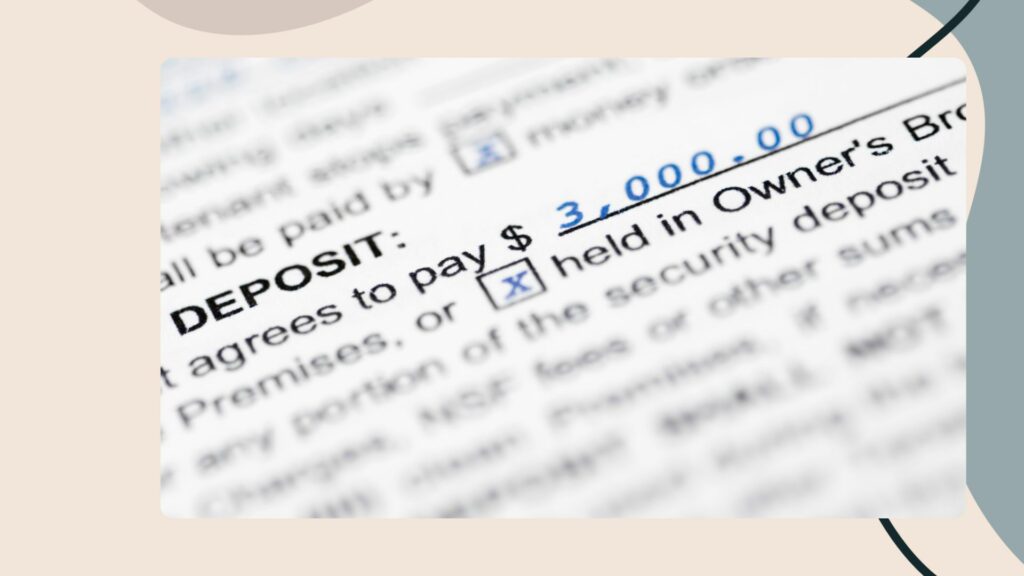AB 12 is in full effect as of July 1st, 2024
Navigating the landscape of rental properties in California is about to change with the introduction of Assembly Bill 12 (AB 12). This new legislation brings significant modifications to how security deposits are handled, impacting both landlords and tenants across the state. For landlords, understanding these changes is crucial to maintaining compliance while continuing to protect their rental investments. Let’s dive into what AB 12 entails and how it affects your responsibilities and rights as a landlord in California.

Understanding AB 12
AB 12 introduces a set of new regulations aimed at creating a fairer and more transparent process regarding security deposits in California. One of the key changes is the limitation on the amount a landlord can request as a security deposit. Under AB 12, the maximum allowable security deposit is reduced to one month’s rent for unfurnished properties and one and a half month’s rent for furnished properties. This adjustment seeks to alleviate the financial burden on tenants while ensuring landlords still have a reasonable security measure in place.
Another significant change brought about by AB 12 is the timeframe for returning security deposits. Previously, landlords were required to return the security deposit within 21 days after a tenant vacated the property. AB 12 shortens this period to 14 days, emphasizing the importance of promptness and accountability in landlord-tenant transactions. This change not only benefits tenants but also encourages landlords to conduct timely property inspections and address any issues swiftly.
The Impact on Landlords
For landlords, these changes might seem daunting at first glance, but they offer several advantages when approached with the right mindset and preparation. Reducing the maximum security deposit amount can make your rental properties more attractive to a broader pool of potential tenants. By lowering the upfront costs, you are likely to see an increase in inquiries and applications, reducing vacancy periods and maintaining a steady rental income.
The shortened timeframe for returning security deposits encourages better property management practices. Landlords who develop efficient systems for conducting move-out inspections and processing returns will find it easier to comply with the new regulations. This can lead to enhanced tenant satisfaction and a stronger reputation as a landlord who is both fair and responsive.
Moreover, AB 12 introduces a requirement for landlords to provide an itemized statement and receipts for any deductions made from the security deposit. While this might appear as additional paperwork, it can actually serve as a protective measure for landlords. Detailed documentation helps to prevent disputes by clearly outlining any damages or unpaid rent that justify deductions. Keeping thorough records and communicating transparently with tenants can help avoid misunderstandings and legal complications down the line.
Best Practices for Compliance
To smoothly transition into compliance with AB 12, landlords should consider adopting a few best practices. Start by updating your rental agreements to reflect the new security deposit limits and timelines. Make sure your lease agreements are clear and comprehensive, covering all aspects of the tenancy, including the conditions under which deductions from the security deposit may be made.
Implementing a standardized move-in and move-out inspection process is crucial. Use checklists and take photographs to document the property’s condition at the start and end of each tenancy. This evidence will be invaluable in resolving any disputes regarding damages and security deposit deductions. Additionally, conducting a pre-move-out inspection with the tenant can help address potential issues before they move out, reducing the likelihood of contentious deductions.
Investing in property maintenance and prompt repairs can also minimize disputes over security deposits. Regular upkeep not only preserves the value of your property but also ensures that tenants have fewer reasons to dispute charges for damages. Establishing a good relationship with your tenants by being responsive to their maintenance requests and concerns can foster mutual respect and cooperation, making the process of returning security deposits smoother.
While AB 12 introduces new regulations that might initially seem challenging for landlords, they also present an opportunity to refine your property management practices and enhance tenant relations. By understanding and embracing these changes, you can ensure compliance with the law while maintaining a positive and professional landlord-tenant relationship. Adopting best practices and clear communication will not only help you navigate the new regulations but also set you apart as a conscientious and reliable landlord in California’s evolving rental market.
Continue Reading..
Blog Home | « COVID-19 Rent Relief Repayment Letters | Good Ethics When Managing Rental Property »